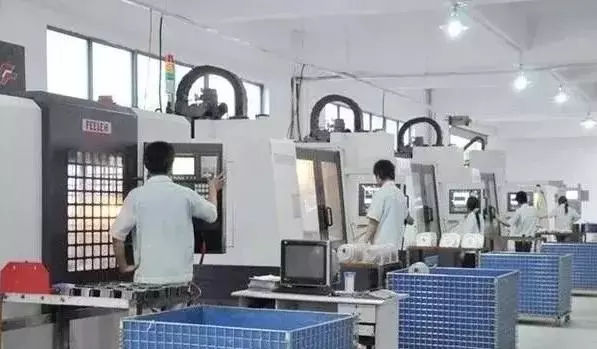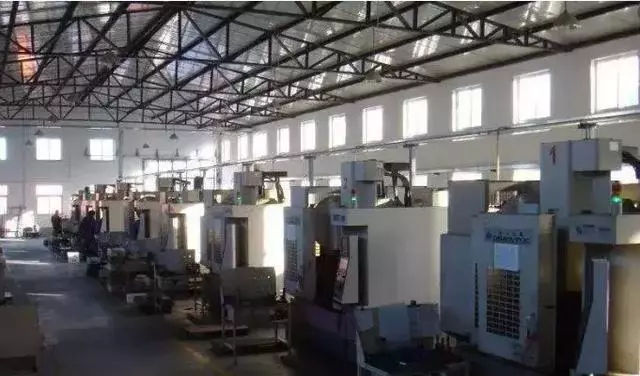China's machine tool industry is in a high-speed growth trend. From January to May this year, the production and sales growth rate of the CNC machine tool industry reached about 40%. In June, although the production growth rate of CNC machine tools slowed down compared to the beginning of the year, it still maintained a relatively high level of growth. After the country has introduced a series of relevant support policies, investors' confidence in China's manufacturing industry has increased, driving an increase in domestic market demand. A group of high growth industries based on heavy industry, such as coal, automobiles, steel, real estate, building materials, machinery, electronics, and chemicals, have strong development momentum, forming a huge demand for the machine tool market, especially CNC machine tools. CNC machine tools have become the mainstream of machine tool consumption, and CNC machine tool enterprises have not stopped but have been charging forward.

Lack of CNC talents
With the continuous growth of demand for CNC machine tools, CNC technology has been widely applied in various fields, and the demand for talent has gradually increased. However, there is a shortage of CNC talents in China, and there is an urgent need for a large number of technical talents at all levels, from research and development to use and maintenance. At present, the demand for CNC talents is mainly concentrated in the following enterprises and regions:
1. State owned large and medium-sized enterprises, especially military enterprises with good economic benefits and major equipment manufacturing enterprises, are the main application objects of CNC technology in China. Hangzhou Power Equipment Factory cannot recruit CNC operators with a monthly salary of 6000 yuan.
2. With the rapid development of private economy, CNC talents are in short supply in developed coastal areas of China (such as Guangdong, Zhejiang, Jiangsu, and Shandong), mainly concentrated in mold manufacturing enterprises and automotive component manufacturing enterprises.
According to relevant data, the CNC rate of mechanical equipment in foreign countries has reached over 85%, while the CNC rate of mechanical equipment in China is less than 30%. The application of new technologies and processes in the mechanical manufacturing industry, as well as modern manufacturing industries such as molds, watches, hardware, small and medium-sized manufacturing, computer graphics, CNC programming design, mold design and manufacturing, have all widely touched and used CNC technology, and there is indeed a great demand for talent.
Uneven cultural differences among CNC operators
The majority of CNC operators come from ordinary machining, with varying cultural qualities. In the application of CNC equipment, the idea of using ordinary equipment for machining is applied, and the characteristics of high-speed cutting of CNC machine tools, the selection of CNC cutting tools, and the selection of cutting parameters lack scientific validity. The quality of engineering procedures and processing efficiency completely depend on the quality of the operators, which cannot maximize the processing efficiency of CNC equipment.

Solution measures: Popularize the low-end and focus on the high-end
CNC operators, like floor cleaners, have little technical expertise, "said Zhang Yu, the head of a machinery manufacturing enterprise in Chengdu. He believes that some CNC students who have graduated now are not familiar with basic operations, some produce many defective products, and some have high expectations but low skills. They will soon switch jobs. This actually reflects the problem of talent cultivation in the school, "said Mr. Wen, Vice President of Chengdu Changzheng CNC Electromechanical School. Currently, the current situation of CNC professional training in most schools is that it places more emphasis on basic knowledge training than the development of high precision majors; Emphasize on campus classroom learning and machine tool training, and prioritize on-site teaching through enterprise cooperation; Emphasize knowledge transfer over professional ethics training. With the increasing number of students majoring in CNC and the gradual cooling of the employment boom in low-end positions in the industry, these hidden concerns will further be exposed.
"From the perspective of the path taken by foreign numerical control majors, simple numerical control operators have no future." Mr. Chen, a teacher of the numerical control major in the Vocational and Technical College of Southwest Jiaotong University, said that, just like the computer major 10 years ago, at that time, the computer talents trained by the school were in short supply. Now, computers have basically become a general specialty, and employment is not easy. From the perspective of the development direction of the global CNC industry, the use of ordinary CNC machine tools is becoming increasingly widespread, coupled with the increasing level of intelligence of CNC machine tools, which gradually have functions such as self-diagnosis, adaptive control, logical analysis and judgment. Except for a small number of high-precision manufacturing industries, the increasing level of intelligence of the system actually reduces the requirements for operators.
Some forward-looking schools have proposed countermeasures to popularize the low-end and focus on the high-end. A school in Chengdu has proposed to offer elective courses to more professional students to learn CNC, ensuring that their CNC knowledge is basically sufficient after entering the enterprise. For a small number of professional learners, in-depth theoretical and operational courses will be offered, and professional ethics education will be strengthened.